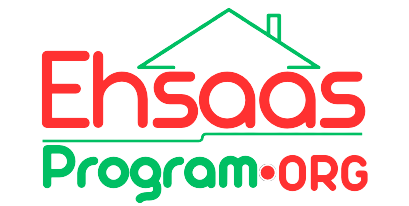Ehsaas Nashonuma is a vital component of Pakistan's Ehsaas Program, focusing specifically on addressing the nutritional needs of pregnant and lactating mothers and their infants. Launched as part of the broader Ehsaas initiative, Nashonuma aims to improve maternal and child health by providing financial support to vulnerable women during the critical stages of pregnancy and early childhood.
Key Objectives:
Nutritional Support:
Ehsaas Nashonuma recognizes the significance of proper nutrition during pregnancy and infancy for the health and development of both the mother and child. The program provides financial assistance to ensure that expectant and lactating mothers have access to essential nutrients, contributing to healthier pregnancies and better outcomes for infants.
Healthcare Access:
Beyond financial support, Ehsaas Nashonuma emphasizes the importance of regular healthcare check-ups for pregnant women. The program encourages and facilitates access to prenatal and postnatal care, aiming to reduce maternal and infant mortality rates.
Education and Awareness:
Another crucial aspect of Ehsaas Nashonuma is the promotion of health education and awareness. The program seeks to inform mothers about the importance of proper nutrition, breastfeeding, and other essential practices for maternal and child health. By empowering women with knowledge, the program aims to create lasting positive changes in communities.
Empowering Women:
Ehsaas Nashonuma contributes to the empowerment of women by recognizing their role as primary caregivers and influencers in family health. Through targeted support, the program aims to enhance the well-being of both women and their children, fostering a cycle of improved health and economic stability.
Implementation:
The implementation of Ehsaas Nashonuma involves identifying eligible beneficiaries, particularly pregnant and lactating mothers facing economic challenges. Financial assistance is provided to these women in the form of cash transfers or vouchers, allowing them to purchase nutritious food items essential for maternal and child health.
Measuring Impact:
The success of Ehsaas Nashonuma is measured through various indicators, including improvements in maternal health, reduced rates of malnutrition among infants, and increased awareness about proper nutrition and healthcare practices. By addressing these key areas, the program contributes to breaking the cycle of intergenerational poverty and promoting healthier communities.
Challenges and Future Directions:
While Ehsaas Nashonuma has made significant strides, challenges such as reaching remote or underserved areas and ensuring the sustained impact of the program persist. Ongoing efforts are required to address these challenges, and the government's commitment to continuous improvement is essential for the program's long-term success.
In conclusion, Ehsaas Nashonuma plays a crucial role in safeguarding the health and well-being of mothers and infants in Pakistan. By addressing nutritional needs and promoting healthcare awareness, the program contributes to building a healthier and more resilient society, aligning with the broader goals of the Ehsaas Program in creating positive social change.

